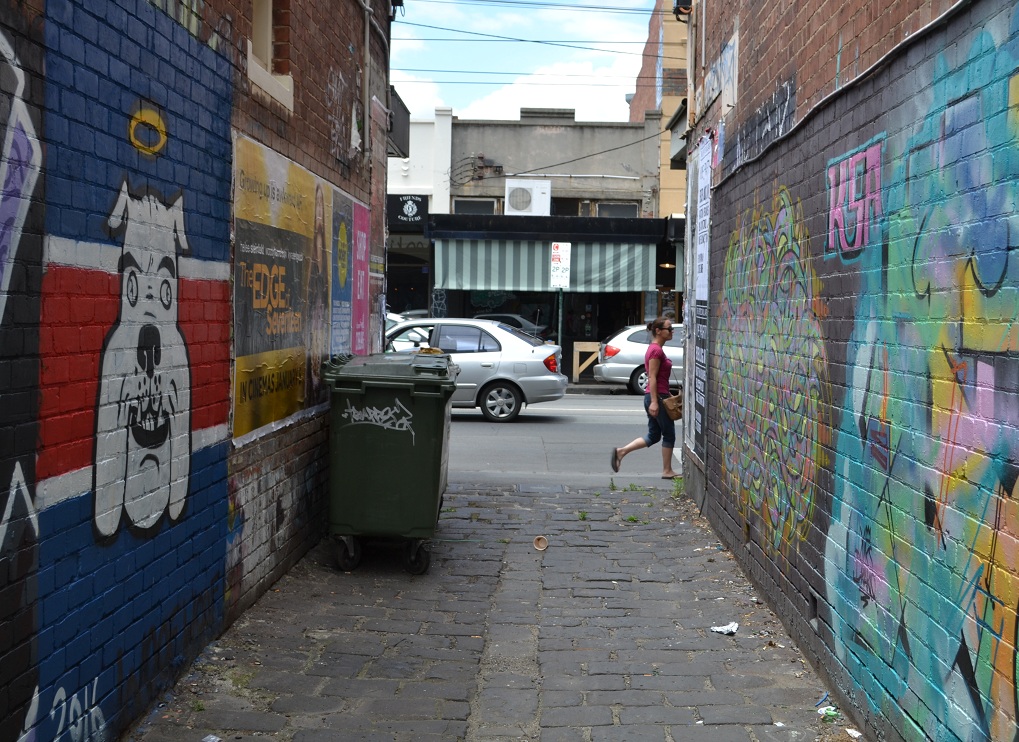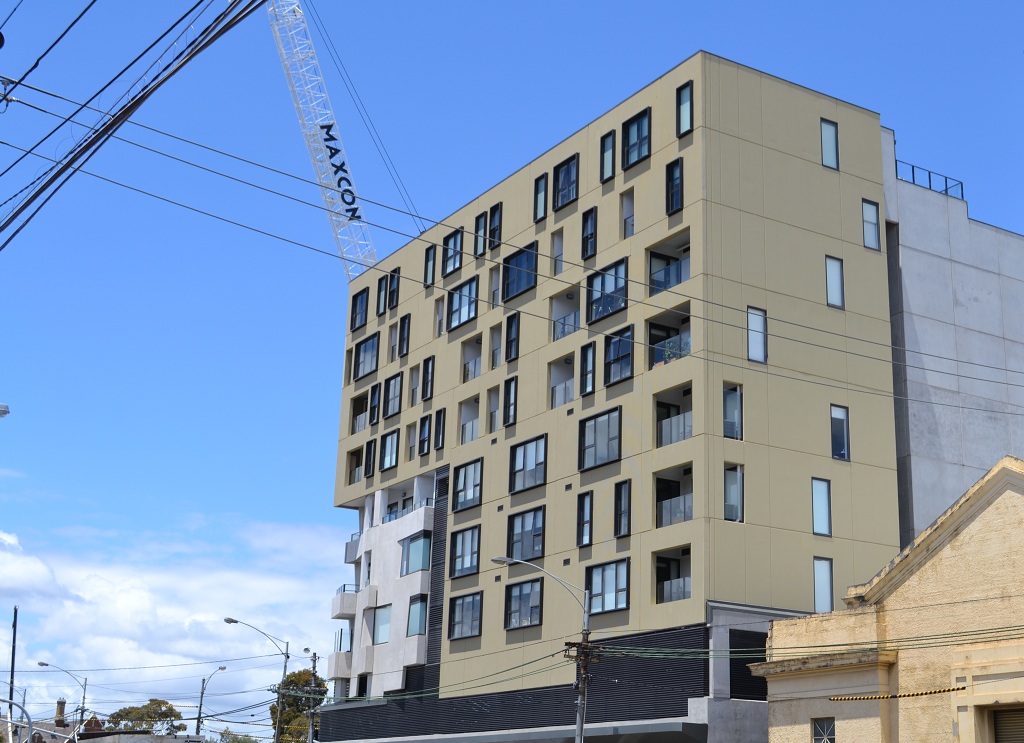
Moreland’s election results reflect a changing political hue as young voters extend the Greens’ electoral reach. PIC: Daniel Connell
For the first time in Moreland City Council history, the Labor Party is not in the driver’s seat.
Instead, the Greens dominate, their triumph in October’s local government elections cementing a trend that is reshading inner Melbourne’s electoral map.
The shifting fortunes have prompted soul searching among Labor stalwarts, who are blaming candidate selection and demographics for the party’s poor recent showing.
“The election results obviously weren’t good,” says Labor councillor Lambros Tapinos, who won re-election in Moreland’s South-East Ward. “There was an increase in the primary vote across Moreland for the Greens. I predicted Labor would win six council seats, but we only won three.”
The question Labor insiders are asking themselves is whether the party has lost Moreland for good.

This year, the Greens doubled their representation from two to four on the council, while Labor went from five councillors to three, compounding the party’s poor 2012 showing when its numbers dropped from eight to five. In the wash-up, a Greens mayor was elected for the first time.
But the changing political hue is hurting the party across the electoral spectrum. In the 2014 state election, Jane Garrett almost lost Brunswick to her Greens opponent, which overlaps the municipality.
And in this year’s federal poll, Labor came close to conceding Wills, the erstwhile seat of Labor hero and Prime Minister Bob Hawke, which covers roughly the same area as Moreland.

Cr Tapinos believes Labor was disorganised at local government level, losing out in Moreland to the Greens’ disciplined and well-funded campaign.
He argues that too many Labor candidates ran in the election, and it was unclear what each stood for. The party declined to endorse any candidate, meaning voters struggled to tell them apart, doubtless cruelling Labor’s polling prospects.
“People didn’t know who the Labor candidates were or what their policies were, so we lost a lot of votes because we didn’t communicate effectively,” Cr Tapinos says.
He argues the party should go back to preselecting candidates, something it last did in 2008, giving it greater control over the quality of candidates and to avoid fracturing the Labor vote. It would also ensure Labor could control preference swaps to ensure Labor candidates had the best chance of winning.
“Who knows how far the gentrification will go? I remember a Labor insider telling me the barrier between the Labor and Greens vote was around Separation Street, around Northcote. Now it has moved up to Bell Street just around Coburg and Preston. It could even go up to Preston and beyond.” — political scientist Nick Economou
“Because there were so many Labor candidates, they took votes off each other,” laments Cr Tapinos. “The preferences ended up being scattered between Labor and non-Labor candidates. If we had a clear group of preselected candidates, we’d do much better.”
But political scientist Nic Economou, of Monash University, doubts that Labor will return to preselecting candidates in Moreland, arguing that such a move would likely stir old factional battles which the party would prefer to avoid.
“You begin the factional process again, and it will just turn into an ugly mess,” he says. “Every faction will want to get their candidate preselected. And if they don’t, the candidate will threaten to quit the party. The party isn’t interested in getting involved and starting these fights again.”
Labor councillor Oscar Yildiz, who was returned in Moreland’s North-West Ward, blames a lack of teamwork within the party for the result, and says factionalism is damaging Labor’s electoral prospects.
“If we don’t get rid of factions, the party is going to self-destruct,” he insists. He believes the lack of organisation in Moreland is symptomatic of that larger issue, where organising preference swaps among Moreland’s Labor candidates became too difficult.
“We had Labor candidates from different factions ringing up federal MPs and they [were] told to sort it out themselves,” he adds.
While Labor has been mired in factionalism, the Greens have quietly triumphed. But Labor’s problems lie not only within the party itself.
Demographic change is diluting Labor’s historic electoral strength, sounding a warning for the future.
Moreland and surrounding areas are experiencing an influx of younger,

more educated and mostly wealthy residents, who are filling new apartment blocks and bringing a greener tinge to its politics.
Dr Economou characterises the newcomers as “post-materialist voters”, those who are less likely to vote on typical Labor issues such as healthcare and education. Instead, the new arrivals are more likely to focus on bigger picture issues such as climate change and same-sex marriage.
Cr Tapinos recognises the threat to Labor. “These voters are not typical Labor voters, and we are concerned that this demographic is increasing in the region.”
In council elections, residents typically cast their vote based on the personalities of candidates or on specific local issues, which means parties and party ideology are less important than at state and federal levels.
But in the gentrifying inner-north, the Greens have morphed from a political party into a brand symbolising progressive values.
“There are voters who are merely voting on brand, voting for a candidate because they’re from the Greens,” says Cr Tapinos. “It can be difficult to engage with these voters.”
Dr Economou, a senior lecturer in the School of Political and Social Inquiry at Monash, says for these inner-city voters, backing the Greens is, in some ways, a symbolic gesture, validating their support for causes such as gay marriage, action on climate change, refugee rights and improved public transport.
“Political parties can act as a clearing house for a whole range of issues; people can show they care about a series of causes just by supporting one party,” he adds.

Dr Economou argues the Greens’ pocket of support, currently centred in and around Melbourne’s CBD and the inner-north, could creep further north into suburban areas typically dominated by Labor, proving there’s no natural geographical limit to the Greens’ appeal.
“Who knows how far the gentrification will go? I remember a Labor insider telling me the barrier between the Labor and Greens vote was around Separation Street, around Northcote. Now it has moved up to Bell Street just around Coburg and Preston. It could even go up to Preston and beyond.”

Should current trends continue, inner-northern state seats such as Brunswick and Northcote – both currently held by Labor – could fall to the Greens in the next Victorian election in 2018.
Labor MP Fiona Richardson holds Northcote by 6 per cent, but the Greens polled well in the area at the latest Darebin council elections, picking up two seats in Rucker Ward, while Labor was left empty-handed. Meanwhile, former Emergency Services Minister Jane Garrett, who is rumoured to be seeking preselection for the seat of Melton – holds Brunswick by just 2.2 per cent.
Dr Economou believes such seats could easily be lost to the Greens.
Labor is also feeling pressure in seats in Melbourne’s east, including Richmond, where Planning Minister Richard Wynne has a 1.9 per cent margin.
Dr Economou says that Labor’s pride could be on the line.
“It does hurt Labor’s feelings to see the Greens doing so well, because this really should be Labor heartland, and even if they didn’t lose Wills and Batman in the last [federal] election, there’s a sense that the Greens are causing damage to Labor in electoral terms.”



